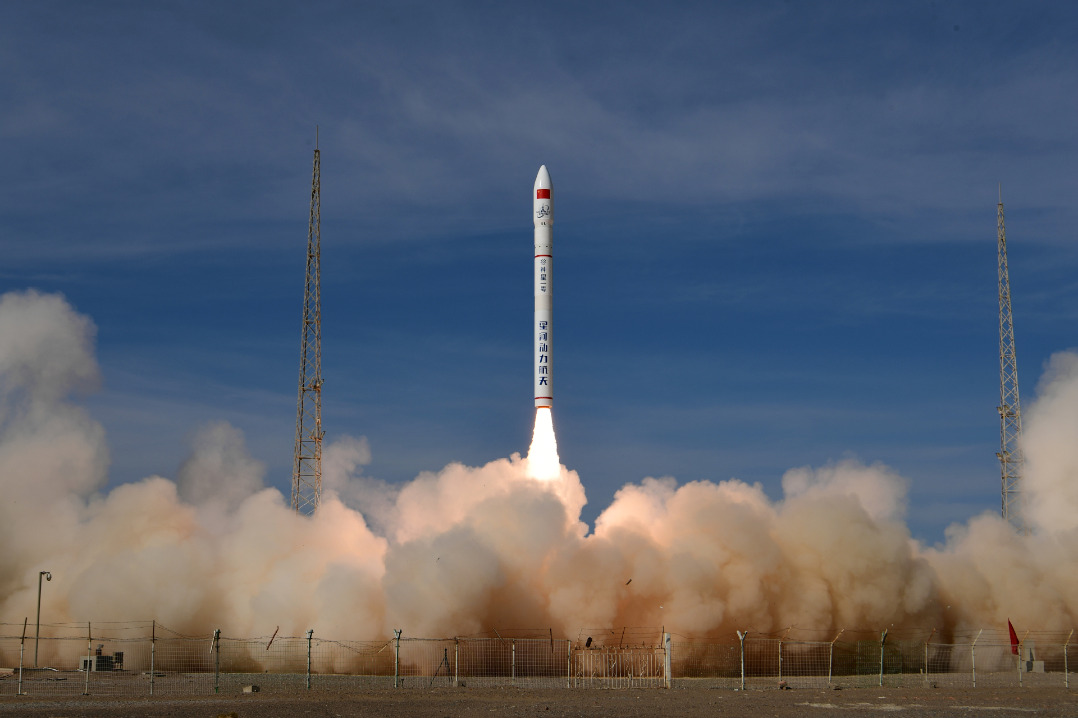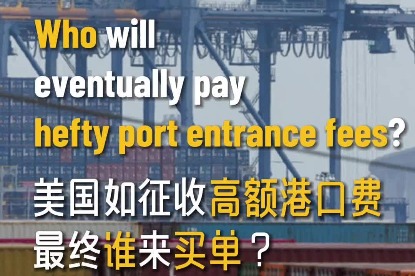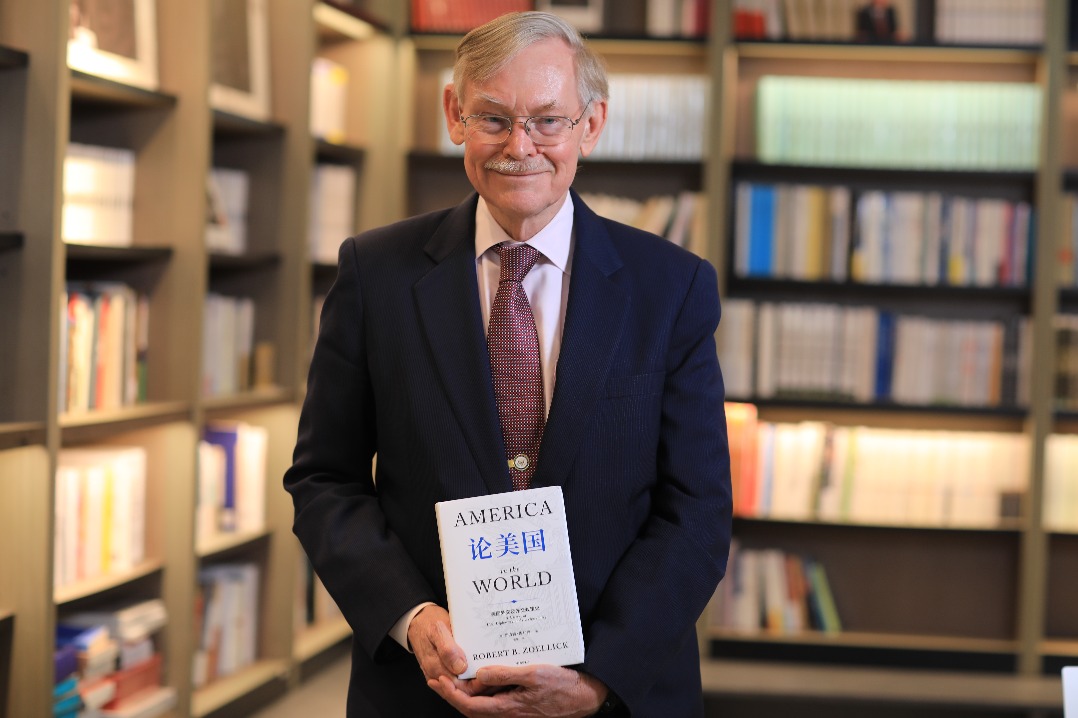Looking to the future


Hungary remains committed to maintaining mutually beneficial trade with China as part of its policy of economic neutrality
What used to be the case throughout Europe is now almost unique to Hungary: cooperation between large European and Chinese transnational companies in key sectors of manufacturing and telecommunications. What used to be win-win cooperation is now turning into a zero-sum game in which Europe is losing through fault of its own, while the United States is winning big. How did we get here and what opportunities lie ahead? Will Hungary remain the exception or will it become the role model for the well-tried new cooperation?
Everything started so well. China joined the World Trade Organization in December 2001, accelerating the spontaneous globalization that started after the end of Cold War. Globalization can be seen as the "natural" state of the world economy, driven by comparative advantage and where all cooperating partners benefit. Production takes place where it is most economical, and the international division of labor brings new countries, regions and continents into the mainstream of the world economy, increasing prosperity and allowing previously underdeveloped regions and countries to prosper.
The East Asian pole of the world economy, however, was not content with the role assigned to it by the West, best described by the German term "extended workbench "and began conscious catch-up development. After 1945, Japan, and from the 1980s onwards the Republic of Korea and the countries known as the "Little Asian Tigers" (Indonesia, Thailand, Malaysia and the Philippines) focused on a few key sectors, in which they caught up with and with time overtook the Western companies that had been market leaders.
The Chinese market economy not only borrowed from the East Asian model, but also developed it further, providing the sustainable economic basis for China's modernization. China has clearly learned from the mistakes made during the transformation of the Central and Eastern European countries and the economic catching-up process in East Asia, and its targeted development policy in the past 40 years has made it the world's second-largest economy.
This conscious catch-up development is important to emphasize as the defining difference, as it distinguishes the pragmatic and socially engaged Chinese economic policy from purely profit-driven Western economic policy, which has, moreover, become increasingly subordinated to ideological goals over the past two decades. In the face of China's development, the West has chosen not to cultivate mutually beneficial trade relations and to maintain international relations based on mutual respect, but to limit and contain the processes of spontaneous globalization.
This process had already begun during the Barack Obama administration and would have been embodied in free trade agreements that would have been an outplacement of Chinese companies from the participating countries. The process of spontaneous globalization was severely disrupted during Donald Trump's first term as president, when he unilaterally decided to exclude Chinese digital companies from the US market. The European Union almost joined it in this restriction. This was averted, but the win-win cooperation in the US has been replaced by a policy of decoupling, which aims to squeeze out Chinese digital technology, electric vehicles and online commerce. Washington had previously cited "human rights" as a justification for the restrictive measures, but since there was no evidence offered to give these alleged violations of human rights credence, under the Joe Biden administration, the restrictions on imports of Chinese high-tech was made under the guise of "national security".
Vulnerable to the US capital market and security guarantees, the countries of the EU and its largest economy, Germany, have benefited from economic relations with China for decades, which is why they did not immediately join the US' decoupling policy. The EU was a winner of spontaneous globalization. Its companies outsourced energy- and labor-intensive production, taking advantage of lower production costs and the proximity of new production units to emerging markets, which generated substantial profits.
European (and US) consumers with average or modest incomes have benefited from affordable, high-quality mass-market products, such as IT and communication devices, household electrical appliances and consumer goods that were previously only available to the wealthier echelons of society.
Germany, in particular, which is exposed to Chinese trade, has been hesitant to introduce restrictive measures for a long time, the best example being 5G technology (the data transmitting part). German telecommunications companies spontaneously opted for Chinese digital technology, but the federal government, under pressure from the US, imposed a five-year phaseout period until 2029.
Indeed, the EU's de-risking policy is an adoption of the US policy of decoupling aimed at reducing switching costs, which over time will mean restructuring supply chains; banning acquisitions of European companies by Chinese enterprises in strategic sectors; and clearing bilateral payments in euros (increasingly in dollars under President Trump).
As a member state of the EU, Hungary is exposed to the decoupling and de-risking policies of Western decision-making centers, but the Hungarian government has developed a policy of connectivity within its means, which offers the opportunity to maintain the cooperation model known from the period of spontaneous globalization and to save it for a later period for European and Chinese companies willing to cooperate.
Hungary is currently a laboratory where Chinese BYD electric cars will be produced for the European market and where Chinese CATL-batteries will be fitted to German BMW cars. Hungarian telecommunications company 4iG signed a cooperation agreement with China's Huawei in October 2023 in Beijing, so Hungary will continue to rely on Huawei's high-tech products and services.
US and EU measures restricting online trade with China have inspired a plan to make Hungary the fulfillment hub for online orders to Central and Eastern Europe. The Hungarian government remains committed to maintaining mutually beneficial trade with China as part of its policy of economic neutrality, resulting in more Chinese direct investment in Hungary in recent years than in France and Germany combined, which are committed to de-risking.
The Hungarian government, which in 2015 became the first EU country to join the Belt and Road Initiative, does not join the ideology-driven policies of the West, which is why many Western, mainly German, companies henceforward are choosing Hungary as a place to cooperate with Chinese companies. This policy was acknowledged and reinforced by President Xi Jinping's state visit to Hungary in May 2024, where the two countries signed an all-weather comprehensive strategic partnership for the new era that sets the path for the years ahead, steeped in a sense of responsibility for a global community with a shared future.
The author is director of the Center for Political Analysis at Szazadveg Foundation in Budapest, Hungary. The author contributed this article to China Watch, a think tank powered by China Daily.
The views don't necessarily reflect those of China Daily.
Contact the editor at editor@chinawatch.cn.


































